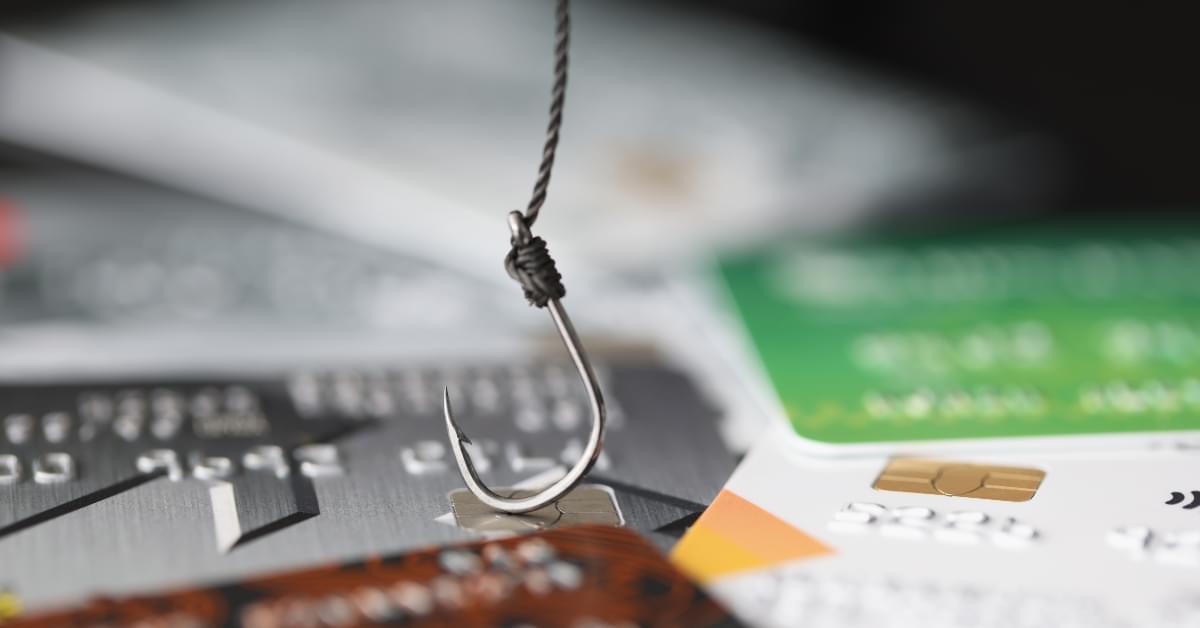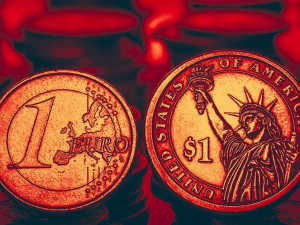
The foreign exchange market is decentralised and, as such, there is no organisation capable of controlling the entire scope of FX. However, hundreds of institutional, government and independent agents act as ‘watchdogs’ using the tools at their disposal to prevent forex trading scams.
The FX market has been subject to increasing regulation as improving technology facilitates greater viability and oversight. Despite this, there will always be loopholes to exploit, new vulnerabilities exposed and criminals seeking the uneducated or unaware to exploit.
It’s important to know which regulatory bodies are responsible for preventing FX fraud and how they operate. Learning how they work can help you understand how to conduct your forex transactions more safely and who to turn to when exposed to fraudulent activity.

Who is responsible for preventing fraud in the FX industry?
As we said, no single entity can monitor and regulate the FX industry. Instead, each country or collective (such as the EU) will regulate forex brokers through a mix of governmental and independent supervisory bodies.
Forex regulators primarily operate within their jurisdictions, and their powers will vary from country to country. Most however, will work collaboratively between domestic regulatory bodies and those internationally to ensure the security of the global financial market.
Some regulatory bodies hold more power than others, as dictated by the number of financial entities they oversee.
Below we’ve listed some of the most influential regulatory bodies whose decisions impact how countries conduct financial trades.
The Financial Conduct Authority (FCA)
The FCA regulates the many businesses that manage money in the UK. This includes credit unions, banks, insurance companies and stock brokerages.
The FCA has the power to make and enforce the law as it sees fit. It can initiate law enforcement proceedings against anyone for insider dealing or market manipulation. It can also prosecute firms and their officers for breaches of money laundering regulations.
The FCA is also responsible for ensuring fair competition, overseeing the conduct of all financial services firms and preventing market abuse.
It’s worth noting that the FCA is funded entirely by the firms they regulate. The FCA must authorise financial services providers before conducting business in the UK. Authorised firms must meet minimum standards and agree to comply with the rules and principles set by the FCA.
The FCA is divided into separate committees, each of which works collaboratively:
- Audit Committee
The Audit Committee is responsible for reviewing FCA board matters, including the FCA’s financial statements, the effectiveness of the FCA’s internal financial controls, the security of the internal whistleblowers, prevention of internal corruption, and other FCA matters.
- Risk Committee
The Risk Committee is responsible for creating and supporting risk management procedures. It also helps gauge the efficacy of the FCA regulations (including authorisation, oversight and enforcement of FCA activities).
- Regulatory Decisions Committee
The Regulatory Decisions Committee delivers warning notices and decision notices to violators on behalf of the FCA. It also works alongside the UK judiciary to observe these notices.
- Oversight Committee
The Oversight Committee is responsible for providing support and advice to the Financial Ombudsman Service (which settles complaints between consumers and businesses) and Financial Services Compensation Scheme (a statutory deposit insurance and investors compensation scheme).
The US Securities and Exchange Commission (SEC)
The SEC protects Wall Street investors, maintains fair markets and holds some sway over foreign FX regulatory bodies – especially when investigating potential fraud. The SEC has five appointed commissioners who each oversee their branch of the commission:
- Division of Corporation Finance
This division monitors the disclosure of financial information to public investors. All publicly traded organisations in the US must file multiple reports with the SEC, each of which is checked to ensure they comply with securities acts and generally accepted accounting principles (GAAP). They also advise the public on how to comply with securities laws.
- Division of Trading and Markets
This division assists the Division of Corporation Finance. It reviews new laws, approves or denies changes to existing rules, and aids in market surveillance.
- Division of Investment Management
This division is responsible for regulation of the US investment management industry. This includes mutual funds, fund managers, and investment advisers to private clients.
- Division of Enforcement
This division enforces laws set by the SEC, recommending investigations into violations to relevant authorities and presenting civil actions to US federal courts. It often works with international law enforcement agencies to file criminal cases.
- Division of Economic and Risk Analysis
This division supports SEC law development and enforcement by providing data analytics when required by a committee of the SEC.
The Commodity Futures Trading Commission (CFTC)
The CFTC is a US federal agency that regulates derivative markets (futures contracts, options, and swaps). It helps protect investors against predatory trade practices and fraud.
Like the SEC, the CFTC has multiple committees which work collaboratively to fulfil the organisation's goals:
- Division of Clearing and Risk (DCR)
The role of the DCR is to ensure the financial integrity of all transactions subject to the Commodity Exchange Act (CEA). The DCR oversees all derivative clearing operations (DCOs) and divides operations among four branches, each with a distinct purpose.
The DCR is also responsible for investigating hardware or software malfunctions, cyber-security intrusions, and other threats.
- Market Participants Division (MPD)
The MPD oversees dealing, trading, investment, and advisory businesses in the derivatives markets. They also help educate the public about the derivative markets and CFTC regulations.
The MDP also monitors designated 'self-regulatory' organisations such as stock exchanges.
- Division of Market Oversight (DMO)
The DMO oversees the stability of those derivatives markets regulated by the CFTC and the exchanges on which they trade. It is also responsible for assessing the adequacy of 'self-regulatory' exchanges and trading platforms.
- Division of Enforcement (DOE)
The DOE is responsible for detecting, investigating, and prosecuting violations of the Commodity Exchange Act (CEA) and CFTC regulations.
The DOE works alongside US law enforcement agencies and international authorities to assist with case development and trials.

5 common forex trading scams
FX fraud isn’t widespread anymore as a result of comprehensive regulation, software tailor-made to detect fraud, and quick-thinking lawmakers.
However, there will always be a few bad apples out there, and today’s forex scams rely on looking like the ‘real deal’ while tricking emotional investors into thinking they can make a quick buck.
If it looks too good to be true, it probably is. Here are a few of the FX scams you might still see online today:
1. Unlicensed forex brokers
Almost every online platform is vulnerable to phishing, and for every legitimate forex broker, you’ll find imitators who try to trick people into investing in non-existent forex funds.
These fraudulent brokers use the name and registration number of an authorised forex broker – some go as far as replicating the websites of those they are trying to imitate.
Always check the FCA register and use only the contact details listed there. Don’t be caught by scammers claiming the listed info is outdated.
2. Fake managed forex accounts
Many investment firms offer managed forex accounts. Expert traders will invest currency on your behalf for a nominal fee or commission.
Managed forex account scams will pretend to offer expert forex trading services but steal investors’ money instead. Always research before investing and check the FCA register to ensure they are a legitimate service.
3. Signal sellers
Signal sellers advertise ‘professional forecasts’ on which trades to make and when. They claim that this information is guaranteed to help inexperienced traders make money. They usually charge a fee for this service and try to appear legitimate by advertising testimonials from supposedly legitimate sources.
In reality, they do nothing to forecast profitable trades. The information they provide is random, erroneous and harmful.
Most signal sellers advertise themselves on social media with attention-grabbing rhetoric and the guarantee of making millions.
4. High-yield investment programmes (HYIP)
HYIPs are another name for Ponzi schemes. They promise high levels of return for a small initial investment. Similarly, HYIPs pay back initial investors using money generated by new investors. A constant flow of new investors lured by fast, high returns keeps the funds flowing for a time.
Once the influx of new investors begins to slow, the HYIP owners casually close it down and take all the remaining money.
Ponzi schemes share common characteristics so make sure you understand the ‘red flags’ to look out for and protect yourself.
5. Forex robot scams
A new entry to the world of FX fraud, forex ‘robots’ are software programmes that automatically buy and sell currency using an algorithm.
They’re simple constructs by most standards and only particularly useful when used to automatically schedule routine transfers.
Most forex robots you’ll find today are tested and reviewed independently. The more popular will have online forums and social media platforms dedicated to discussing their use and application.
Traders can find untested or fake software all over the internet. These will charge you a high one-time fee for access and leave you with software that either does not work or purposefully makes poor trades.
Are big banks safe from FX fraud?
Multi-million dollar corporations sometimes prioritise revenue over the well-being of customers. Banks, in particular, deserve a healthy amount of scepticism.
Don't think only small-time crooks and ne'er-do-wells trick the innocent into parting ways from their hard-earned cash. Historically, it's not scammers who have contributed the most to FX fraud. Citibank, HSBC, JPMorgan Chase and Wells Fargo are some of the major lenders who have been slapped with hefty fines for market manipulation, deceptive practices and fraudulent trades.
Here are just a few of the egregious violations of FX law committed by large banks in recent years:
Wells Fargo
Wells Fargo was forced to pay a fine of $72.6 million in 2021 for overcharging their customers on foreign exchange fees from 2010 to 2017.
The bank offered foreign exchange services to commercial customers and SMEs. These predatory practices affected over 771 customers. The US Department of Justice claimed this behaviour was encouraged among staff who would joke and brag about how much they had stolen from investors that day.
Staff at Wells Fargo employed two primary tactics. First, staff would quote grossly inflated spreads to customers, widening their sales margins while secretly pocketing millions of USD.
Second, staff would 'accidentally' switch two digits during transactions and charge customers more money. If USD/EUR were at 1.0123, Wells Fargo staff would swap a digit to 1.0213, for example.
When more scrupulous customers complained, staff would claim ignorance, correct the error, and hope that other, less savvy traders wouldn't notice the same.
This all despite a previous $3 billion fine, paid to the SEC and investors after regulators discovered the bank had created millions of fake accounts to inflate its stock value artificially. From 2002 to 2016, Wells Fargo opened millions of unauthorised financial accounts and pressured customers to buy products they didn't need using misleading performance metrics.
G10 spot foreign exchange controversy
A less recent, but no less notable event, was the G10 controversy of 2014. G10 currencies are the 10 most abundantly traded in the FX market. These include the British Pound (GBP), Euro (EUR), Japanese Yen (JPY), Swiss Franc (CHF), United States Dollar (USD), Canadian Dollar (CAD), New Zealand Dollar (NZD), Australian Dollar (AUD), Danish Krone (DKK), Norwegian Krone (NOK) and Swedish Krona (SEK). They have the highest liquidity, turnover and widespread use within global markets.
As a result of investigations conducted in the FX sector, the FCA found that ineffective controls allowed several banks to violate confidentiality, conflicts of interest and trading conduct laws between 2008 and 2013.
The worst offenders were found to be Citibank, HSBC, JPMorgan Chase, the Royal Bank of Scotland and UBS AG.
Together, they colluded to share confidential information regarding their clients' activities to manipulate G10 currency rates in a way that could disadvantage their clients and the market.
Consequently, the FCA fined those banks found guilty a collective £1.1 billion (the largest fine ever imposed by the FCA to date).
The FCA then delved even further, working closely with other UK, EU and US regulators. As of today, Swiss regulator FINMA, together with the CFTC and Comptroller of the Currency (OCC), have imposed a further $2 billion in fines on the aforementioned banks.

How to avoid FX fraud with CurrencyTransfer
CurrencyTransfer was founded to guarantee fair, safe and fast trades while circumventing the risks, fees and lack of visibility common to the business practices of most banks.
We work with a network of FCA authorised and SEC-regulated brokers to help our customers safely conduct foreign currency trades and prevent individual clients, SMEs and larger multi-national organisations from falling prey to negligent FX practices, emotional trading and forex scams.
When you sign up to our online platform, you’ll be granted access to a suite of financial tools. These include instant access to multiple currency pairings, live market rates, and a personal currency concierge.
Use our services at CurrencyTransfer to help develop a robust, sustainable and effective FX programme and safe-guard your financial future.
Matthew Swaile
Copywriter
Florence Couëdel
Editor



